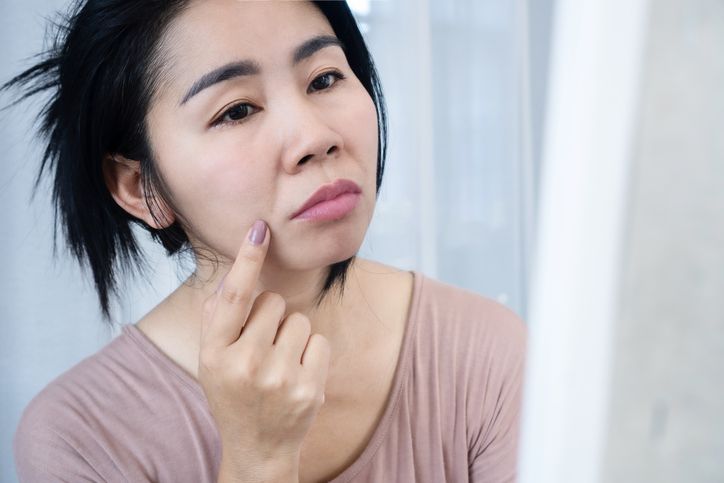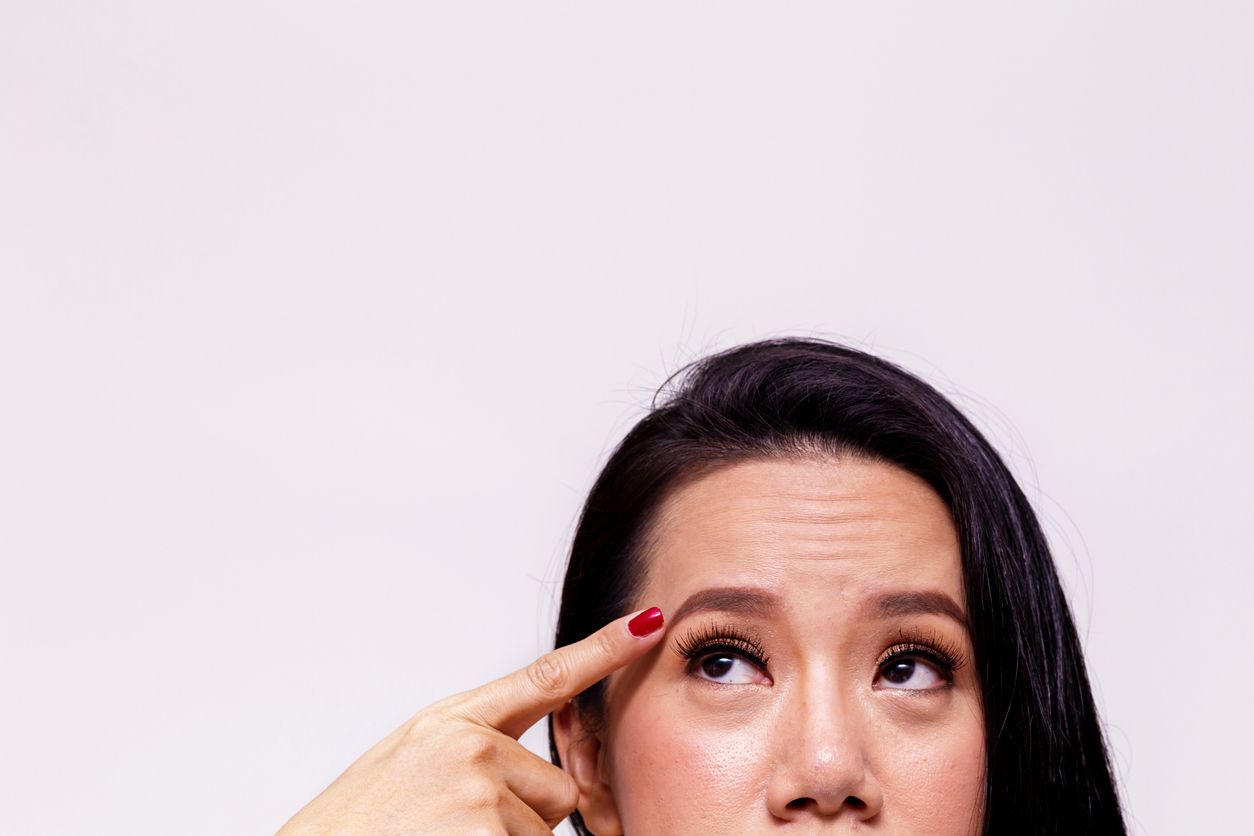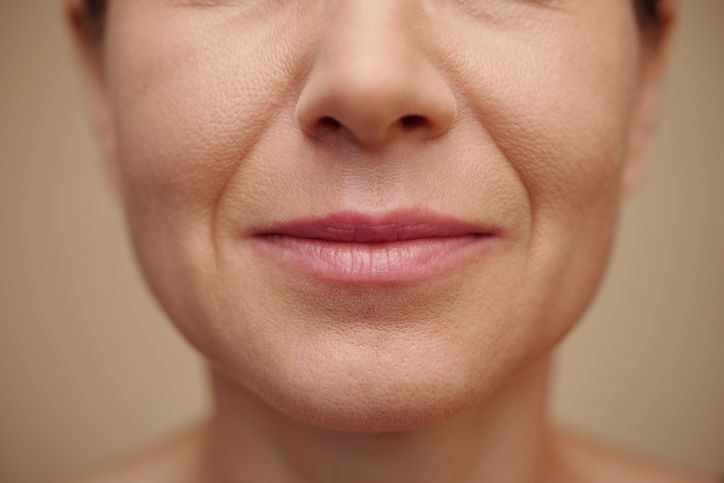
- Home
- Trend
- Weight Loss Strategies
- Acne Tips
- Hair Health Information
- Blemish Removal Tips
- Acne Scar Removal Tips
- Muscle Building Techniques
- Intimate Care Tips
- Postpartum Intimate Care
- Eye Bags Wiki
- Tips for Face Slimming
- Secret of Permanent Hair Removal
- Breast Enlargement Tips
- Cure to Snoring
- Marionette Lines
- Skin-Tightening Secrets
Excess oil production on the scalp is one of the most common scalp concerns. While it may seem like a minor issue, it can lead to unpleasant scalp odor and flat, limp hair—or worse, contribute to hair loss. Want to fix your oily scalp once and for all? Don’t miss this article! We break down the key causes and symptoms of an oily scalp and share expert-backed solutions to help you finally say goodbye to greasy roots.
7 Reasons Your Scalp Is So Oily—Which One Applies to You?
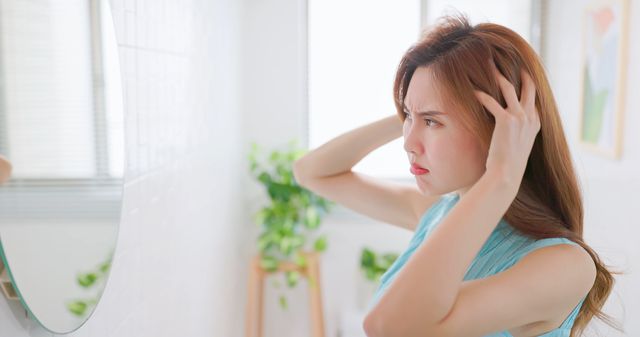
i. Cause #1: Genetics
Genetics is one of the most common reasons for an oily scalp. If oily scalps run in your family, you’re more likely to have the same issue. That’s because your genes influence the size and activity of the sebaceous glands, which in turn affects how much oil your scalp produces.
ii. Cause #2: Hormonal Imbalance
Hormone levels also impact oil production. Our bodies contain both androgens (male hormones) and estrogens (female hormones). When your hormones are imbalanced—especially if androgens are elevated—your scalp tends to produce more sebum, leading to excess oil.
Additionally, androgens can react with 5-alpha reductase in your body to produce dihydrotestosterone (DHT), a compound that damages hair follicles. This disrupts the hair growth cycle, slows down hair growth, and can even trigger hair loss.
iii. Cause #3: Wearing Hats Frequently
Caps and beanies may be stylish or practical, but wearing them too often traps heat and sweat on your scalp, making it hard to breathe. This encourages your scalp to produce even more oil and can worsen greasy hair. In more severe cases, it may even lead to scalp acne.
iv. Cause #4: Overwashing Your Hair
Many people with oily scalps tend to wash their hair more frequently to remove the grease. However, overwashing can strip your scalp of its natural oils. In response, the sebaceous glands go into overdrive, producing even more oil to "compensate," resulting in a vicious cycle. Also, washing with overly hot water can dry out your scalp and increase oil production.
v. Cause #5: Not Changing Pillowcases Often Enough
It’s easy to overlook, but not washing your pillowcases regularly can worsen scalp oiliness. Each night, your scalp transfers oil, sweat, and dead skin to your pillow. Over time, this buildup encourages bacterial and fungal growth. Sleeping on a dirty pillowcase continuously can cause your scalp to become greasy and unhealthy.
vi. Cause #6: Using the Wrong Shampoo
Just like facial skin, your scalp has different types—oily, dry, normal, and sensitive. Each type requires specific haircare products. For example, oily scalps need clarifying shampoos to remove buildup, whereas dry scalps need moisturizing formulas. Using the wrong shampoo can throw your scalp off balance and increase oil production.
vii. Cause #7: Underlying Health Issues
Traditional Chinese Medicine (TCM) believes that scalp oiliness is closely linked to internal health. According to TCM theory, conditions like spleen dampness, liver/kidney deficiencies, blood dryness, liver qi stagnation, internal damp heat, or yin deficiency can all lead to excess scalp oil. TCM treatments often aim to strengthen the spleen, remove dampness, improve circulation, and support liver health to restore scalp balance.
5 Key Signs You May Have an Oily Scalp
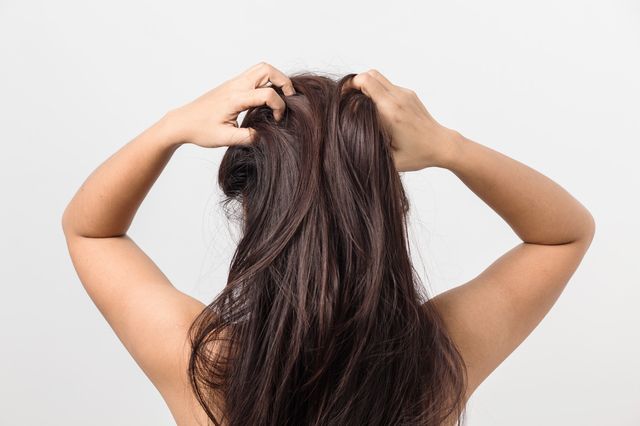
i. Strong Scalp Odor
One of the first signs of an overly oily scalp is an unpleasant smell. When sebum builds up along with sweat, dead skin, and dirt, it can oxidize into a sticky film that creates a foul, greasy odor.
ii. Flat, Lifeless Hair
Healthy hair should look voluminous and fresh. But when excess oil weighs your hair down—especially at the roots—it appears limp and damp. This not only makes your hair look flatter but also gives the illusion of less volume.
iii. Itchy Scalp
Too much oil creates a damp, poorly ventilated environment that allows bacteria and fungi to thrive, causing itchiness and irritation.
iv. Scalp Acne
When oil mixes with dead skin and dirt, it can clog hair follicles. These clogged follicles are prone to bacterial infections, which inflame the skin and lead to scalp pimples or acne.
v. Hair Loss
Excess oil can block hair follicles and hinder healthy blood circulation, depriving your hair roots of the nutrients they need. Over time, hair strands weaken and fall out more easily, and hair follicles lose their ability to anchor the strands—resulting in hair loss.
免費體驗
F8 Hair Regrowth Treatment
1 Minute Self-Registration
Date should not be before minimal date
Shampooing Mistakes That Make Oily Scalp Worse
i. Mistake #1: Pouring Shampoo Directly on the Scalp
Many people apply shampoo directly to the scalp and lather it in—but this is actually harsh on the skin. Most shampoos are slightly alkaline and can irritate your scalp if applied directly. Instead, lather the shampoo in your hands first before massaging it gently onto your scalp.
ii. Mistake #2: Ignoring the Scalp While Shampooing
Some people focus only on washing their hair strands and forget the scalp. But scalp care is essential—it’s the foundation for healthy hair. A clean scalp helps prevent oil buildup, dandruff, hair loss, and other issues. When cleaning your scalp, use the pads of your fingers to massage gently—avoid scratching with your nails, which can cause damage.
iii. Mistake #3: Not Drying Your Hair After Washing
Air-drying your hair might seem harmless, but leaving moisture trapped in your scalp creates a breeding ground for bacteria. This weakens the scalp and worsens issues like greasiness, odor, and hair loss. Always blow-dry your hair promptly after washing.
4 Effective Ways to Manage Oily Scalp
i. Wash Your Hair the Right Way
Here’s a step-by-step guide to proper shampooing:
• Step 1: Detangle your hair with a comb before washing to minimize hair breakage.
• Step 2: Rinse your hair and scalp thoroughly with lukewarm water for about 3 minutes to loosen dirt and oil.
• Step 3: Lather shampoo in your hands before applying it evenly to your scalp and hair.
• Step 4: Massage your scalp with your fingertips, then gently "comb" through your strands with your fingers.
• Step 5: Rinse thoroughly with clean water to remove all residue.
ii. Choose the Right Shampoo for Your Scalp Type
Everyone’s scalp is different, so it’s important to choose products that suit your individual needs. Just because a shampoo is popular online doesn’t mean it’s right for you. If you have dry scalp, look for shampoos with hydrating ingredients like nut oils. If you have oily scalp, avoid silicone-based products that can clog pores.
iii. Deep-Cleanse Your Scalp Periodically
Dead skin naturally accumulates on the scalp over time. When it builds up, it can block pores and trap oil. Use a scalp exfoliant or clarifying treatment occasionally to clear away buildup and prevent clogged follicles. Just be cautious—overusing strong cleansers can dry out your scalp and reduce hair elasticity.
iv. Improve Your Diet
What you eat affects your scalp health. Fatty, salty, and highly processed foods can increase sebum production. Try to eat a cleaner, lighter diet to support scalp balance and reduce digestive strain. A healthy gut contributes to a healthy scalp.
Struggling With Greasy Scalp and Hair Loss? Try the Perfect Medical F8 Hair Regrowth Treatment
Mild oiliness can usually be managed with the above tips. But for severe cases—especially when paired with hair loss—home remedies may not be enough. That’s where the Perfect Medical F8 Hair Regrowth Treatment comes in.
This non-invasive treatment uses low-level soft laser technology to reach deep into the scalp and hair follicle roots, promoting repair and regeneration. The laser energy also boosts blood flow and microcapillary formation in the scalp, helping hair grow stronger and more resilient.
Once blood circulation improves and the follicles regain vitality, the overall condition of your scalp dramatically improves—reducing greasiness, itchiness, and acne.
Perfect Medical is now offering free trials of the F8 Hair Regrowth Treatment! Click the link below to book your experience.
Experience Today: Perfect Medical F8 Hair Regrowth Treatment免費體驗
F8 Hair Regrowth Treatment
1 Minute Self-Registration
Date should not be before minimal date
FAQ

Why does my scalp keep getting oily?
Excess oil can be caused by genetics, overwashing, the wrong hair products, or hot weather. Hormonal fluctuations also play a role.
How can I tell if I have an oily scalp problem?
Look for signs like scalp odor, flat hair, itchiness, scalp acne, or hair loss. If you experience several of these, your scalp likely produces too much oil.
How does excess oil lead to hair loss?
Too much oil clogs follicles and disrupts circulation. As a result, your hair doesn’t receive enough nutrients, becomes weak, and falls out more easily.
Do people with dry scalp need deep cleansing too?
Yes. Even dry scalps can accumulate dead skin that clogs follicles, so occasional deep cleansing is beneficial.
What’s the best way to treat oily scalp and hair loss?
Professional scalp care treatments like Perfect Medical’s F8 Hair Regrowth Treatment are highly effective. This soft laser therapy boosts blood flow, restores follicle health, and strengthens hair to address both oiliness and thinning.





